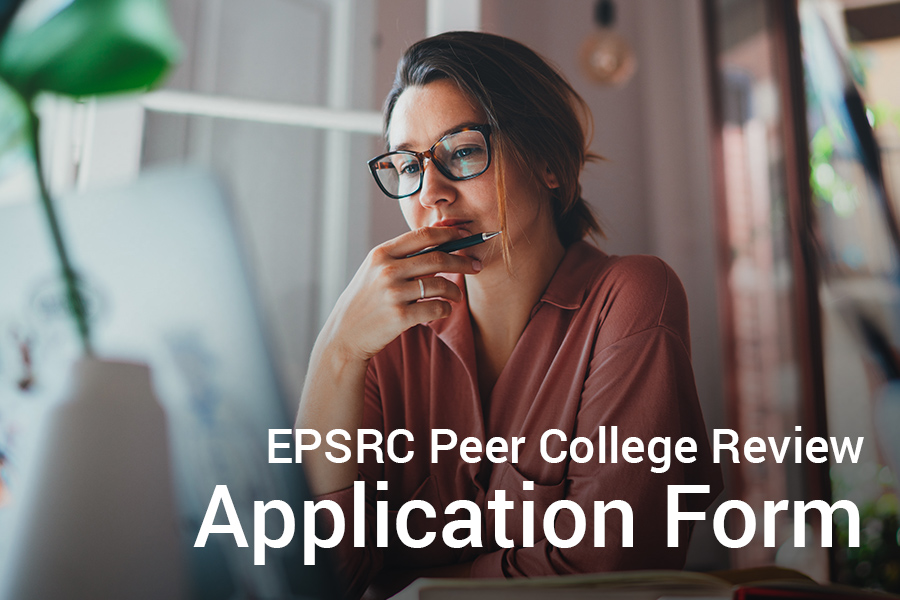
We spoke to Kerem Akartunali, of the University of Strathclyde, to find out about his experience of being a full member of the EPSRC Peer Review College. Kerem is a Professor in the department of Management Science and has been peer reviewing for EPSRC for the last 4 years.
What are the benefits of taking part in the peer-review process?
One of the biggest benefits I find is being able to review the very latest research projects. Being part of the peer-review process allows you to be on the cutting edge and also helps you to understand what makes a good application for funding. It’s also brilliant that you can now link your ORCID account to the process so that your reviews of applications are logged on there too.
Describe the work that you do on the panel?
In my role as a panelist, I am allocated a specific number of proposals which have been reviewed and given a score out of 6 by reviewers. Each panel member evaluates the reviewer reports and then gives a scoring out of 10 for each of the key criteria. During our panel meetings, each member goes through the proposals they scored, and the panel establishes a ranking between all the proposals based on the discussions and scoring provided.
How much time do you put into the College?
It varies, it sometimes just depends on how many proposals have been submitted recently! Similarly, to reviewing journal articles for review, it does take up some of your time, but it is very worthwhile.
Why is it important that OR is well represented in the College?
OR is a specialist topic. Applications from OR candidates should always be assessed by OR reviewers at the College to ensure that they are understood thoroughly by someone who is familiar with the area. That way we can make sure that the review is as fair as possible.
How has being part of the College helped you to better understand the funding application process? Do you now feel more confident when applying for your own funding?
Being part of the process helps you understand how reviewers approach the proposal assessment process. Ultimately, we are assessing whether an application is interesting, if it’s looking for something new, whether it has practical values for the society, whether there are clear plans for delivery and other criteria. Now that I understand this, I know I’ll have a better chance at succeeding with my own applications in the future.
What networking benefits are there, if any, as part of the College?
You often get the chance to network with other panel members and EPSRC folks. Naturally because of Covid-19 that has not been possible lately, but I’m sure it will return in the future.
What do your peers think about you being part of the College?
I definitely think being part of the college is a reputational benefit. Of course, it depends on your current role, but in my experience, I have found that being part of the college is appreciated by the heads of universities and other colleagues.
What is the training like when you join the College?
The initial training when I joined the college was one session followed by on-the-job training. It was fairly short, and I quickly learned what I needed to do. I joined the college because a colleague recommended me to become an associate member. From there, I then became a full member.
Do you think that being part of the College helps to make funding for OR and analytics-based projects fairer/more robust?
I do. Being part of the college has allowed me to review the works of many in the field of OR and will help make the funding decisions fairer. For example, I would be a much fairer judge of a funding proposal for OR than, for example someone, who is a pure mathematician.
How do you remain unbiased when reviewing on a subject so close to your own field?
I think a lot of academics struggle with bias but the same applies to reviewing papers for journals. We must always remain as objective as possible and be looking for developments that will lead our field with new insights.
Do you feel being part of the College has helped you to keep up to date with the latest developments in OR/new methodology?
Certainly. Reading the latest proposals on new research and methods is exciting and I am able to read the work if it is approved and then later published. Being part of the college helps to keep you at the forefront of the latest developments.
What would you say to someone thinking of joining the peer review college?
I would advise them to go for it! It is a rewarding thing to do and the experience it gives you will really help your career long term.
We would like to thank Kerem for sharing his experience with us and hope it has helped inform anyone considering following in his footsteps. For more information about how to join the EPSRC peer review college, visit our main webpage here. To get started you will need a Je-S account with OR listed in your areas of interest. From there you will be able to apply to join the college via an application which takes 10-15 minutes.





